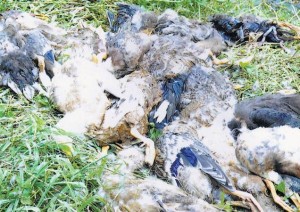The director added that promoting untapped potentials in the beekeeping industry and promoting exports of livestock and livestock products were solemn in government’s agenda. Speaking with newsmen on the sideline of the meeting, the President, Veterinary Council of Nigeria (VCN), Prof. Garba Sharubutu, said that veterinary officers were insufficient at the state level. He, therefore, called for the employment of more professionals. He said the Federal Government had put measures in place to contain the virus but the performance of states needed to be accelerated to stem the spread of the virus.
According to him, the greatest challenge in the livestock sector today is the issue of Avian Influenza, which the meeting intends to deliberate on with a view to coming up with a strategy to be used to contain and eradicate the disease. He identified lack of disease control officers in the states as part of the challenges being experienced in the fight against the spread of the virus. “If you look at it, the Federal Government has put in its best, but I think the performance at the level of the various states needs to be propped up. “The Federal Government has an array of veterinarian’s offices all over the federation, but you will find out that at the level of the state, there are some states that have two or three veterinary officers. “The highest we have is may be in Adamawa with 63 veterinary officers.
“This is quite challenging; there is no effort the Federal Government will put in that does not have the support of the state. “Remember agriculture is on the concurrent list and so the expectation is that local and state governments should be able to gear up by way of getting people, who are going to be involved. “We don’t just shout `surveillance’. You don’t shout `control’ without the necessary personnel and the facilities to actually control this disease.’’ He appealed to state governments to step up their fight against the virus, saying that it had the capacity to negatively affect the economy and government’s policy on self sufficiency.
Source:Leadership Online

 The Federal Department of Veterinary Services has called for “urgent and decisive action’’ through the collaborative efforts of all three tiers of government to contain the spread of Avian Influenza in the country. The Director of the department, Dr Eze Egejuru, made the appeal at the 44th Meeting of the National Livestock Development Committee on Friday in Abuja. “There is therefore an urgent and decisive action through effective synergy and collaboration between the three tiers of government, private sector and other stakeholders to ensure that the disease is brought under control and eventually eradicated.’’ Egejuru said the virus had spread to 23 states and the FCT since its resurgence in Jan. 2015, killing 2.5 million birds across the affected areas.
The Federal Department of Veterinary Services has called for “urgent and decisive action’’ through the collaborative efforts of all three tiers of government to contain the spread of Avian Influenza in the country. The Director of the department, Dr Eze Egejuru, made the appeal at the 44th Meeting of the National Livestock Development Committee on Friday in Abuja. “There is therefore an urgent and decisive action through effective synergy and collaboration between the three tiers of government, private sector and other stakeholders to ensure that the disease is brought under control and eventually eradicated.’’ Egejuru said the virus had spread to 23 states and the FCT since its resurgence in Jan. 2015, killing 2.5 million birds across the affected areas.




